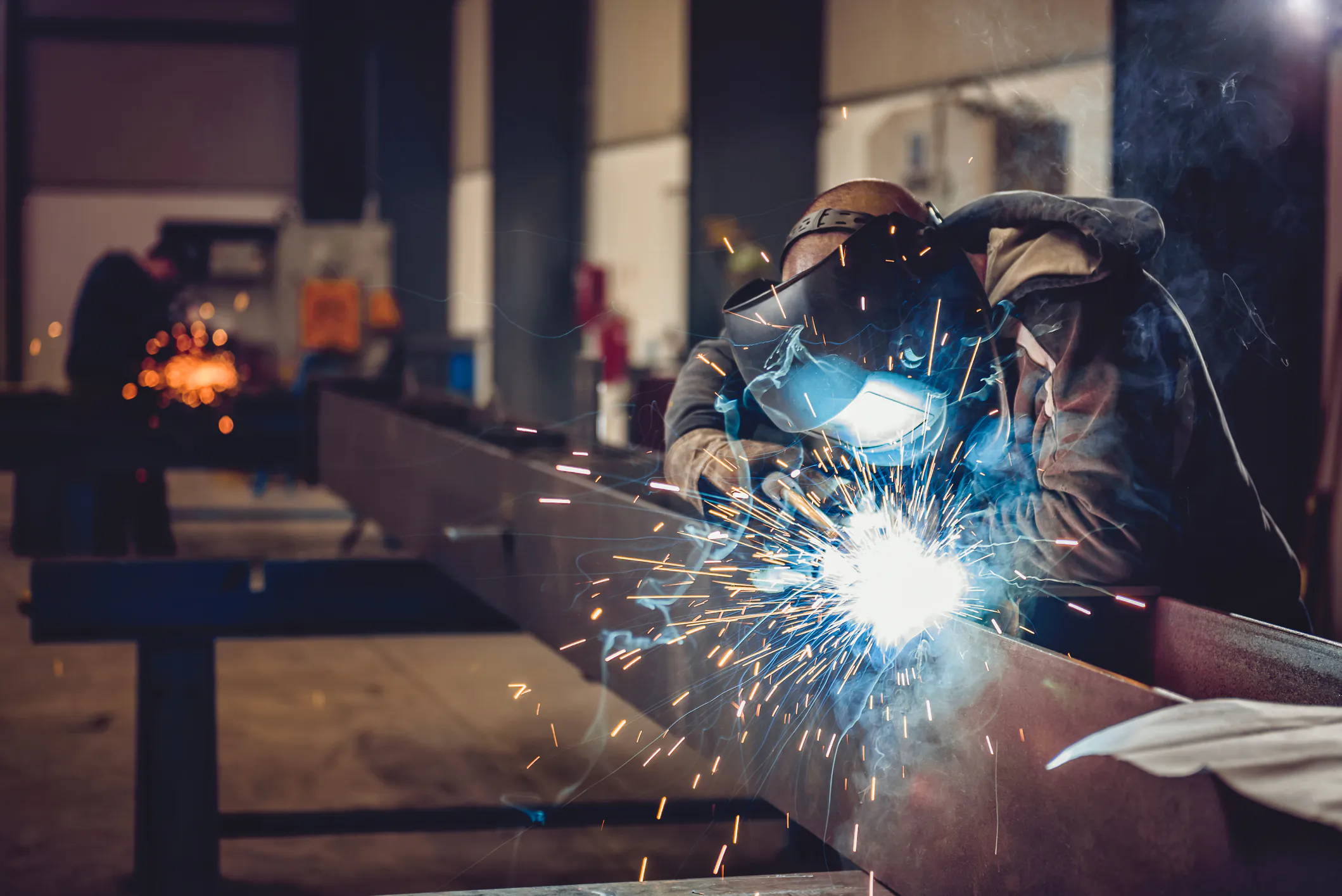The Importance of Metal Heat Treating Companies in the Manufacturing Industry
Metal heat treating is the process of heating and cooling metal in a controlled manner to improve its physical and mechanical properties. It can be used to increase strength, durability, and resistance to wear, as well as to alter the metal’s chemical composition.
The importance of metal heat treating in the manufacturing industry cannot be overstated, as it plays a critical role in enhancing the performance and longevity of a wide range of products. Metal heat treating companies are essential for providing these services to manufacturers.
They work with raw materials such as steel, aluminum, titanium, and other alloys to produce high-quality components that meet exact specifications. These components are then used in a variety of applications across many different industries.
Definition of Metal Heat Treating
Metal heat treating involves heating metal parts to specific temperatures using various techniques and then cooling them under controlled conditions. The process can be used for a variety of purposes such as improving strength or hardness, increasing ductility or toughness, or altering surface characteristics. Almost any type of metal can be heat treated including steel, aluminum alloys, copper alloys, nickel alloys, magnesium alloys and more.
Overview of the History and Evolution of Metal Heat Treating
The history of metal heat treating goes back thousands of years to ancient civilizations like the Egyptians who used fire pits for hardening copper tools. The famed damascus steel swords from medieval times were produced using quenching techniques that are still used today. In modern times however there have been many advancements in technology that have allowed for greater control over temperature regulation during the process.
In addition there have been many advances made with new methods such as vacuum treatment which allows metals to be heated without oxidation occurring due to exposure with air. Heat treating has become an integral part of modern manufacturing processes across almost all industries today due its ability improve the strength, durability, and overall performance characteristics of metal parts.
Types of Metal Heat Treating
Metal heat treating is a process that involves heating and cooling metal to change its physical and mechanical properties. Different types of heat treating can be used to accomplish different goals, such as improving strength, ductility, or toughness. Four common types of metal heat treating are annealing, normalizing, hardening, and tempering.
Annealing
Annealing is a heat treatment process that involves heating metal to a specific temperature and then cooling it slowly. This process helps to reduce internal stresses in the metal and improve its ductility by making it more malleable. Annealing is often used for metals that will undergo further processing or shaping.
Normalizing
Normalizing is a similar process to annealing but involves cooling the metal in air rather than slowly. This faster cooling rate results in a tougher material with improved strength and hardness compared to annealed metal.
Hardening
Hardening is the process of heating metal to a high temperature followed by quenching (rapid cooling) in water or oil. This hardens the material by creating martensite crystals within its structure which increase strength but decrease ductility. Hardening is commonly used for cutting tools, gears, and other high-wear applications where resistance to wear and tear is important.
Tempering
Tempering involves reheating hardened steel at a lower temperature than what was used during hardening followed by slow cooling. The purpose of tempering is to reduce brittleness caused by hardening while maintaining increased strength from martensite formation.
Tempered steel retains some elasticity while still being very strong making it suitable for use in manufacturing springs or other applications where both flexibility and durability are important. These four types of heat treatment have been essential techniques in manufacturing for centuries allowing metallurgists to create materials with specific properties to serve a variety of industries.
Metal Heat Treating Techniques
Atmosphere Control
Atmosphere control is an important technique used in metal heat treating. In this process, the furnace atmosphere is manipulated to ensure that the product being treated is not exposed to any harmful gases or impurities. It involves controlling the temperature, pressure, and composition of gases inside the furnace.
Different atmospheres can be created by using different types of gases such as nitrogen, hydrogen, and argon. The use of atmosphere control helps to prevent oxidation and decarburization of the metal surface during heat treatment.
Vacuum Treatment
Vacuum treatment involves heating metal in a vacuum environment. This technique can be used for both annealing and hardening processes.
It removes any trace elements from the surface and creates a clean environment for treating metals without any contamination from impurities present in air or other gases. Vacuum treatment also ensures that there is no oxidation or decarburization during heat treatment.
Induction Heating
Induction heating is another commonly used technique in metal heat treating companies. In this process, an electromagnetic field is created around the workpiece which generates heat through eddy currents induced within it. The workpiece can be heated quickly and uniformly with minimal distortion using this method.
Induction heating has several advantages over other methods such as flame hardening or gas carburizing including higher production rates due to shorter heating times, high efficiency with low energy consumption, precise temperature control resulting in consistent quality products, and reduced labor costs as it requires less manual intervention. Overall, Metal Heat Treating Companies utilize various techniques based on factors such as cost-effectiveness, product requirements, environmental considerations among others while choosing between these methods for their industrial needs.
Applications and Industries Served by Metal Heat Treating Companies
Aerospace: Pushing the Limits with Heat Treatment Technology
The aerospace industry depends on high-performance materials that can withstand extreme conditions, such as high temperatures, pressures, and corrosion. Metal heat treating companies play a vital role in this field by providing specialized treatments that enhance the mechanical properties and durability of various alloys.
For instance, heat treatment can increase the strength of aluminum alloys used in aircraft structures or improve the resistance of titanium alloys to cracking and fatigue. Moreover, heat treating can help aerospace manufacturers achieve greater precision and consistency in their parts, which is essential for safety and performance.
Automotive: Making Cars Stronger, Lighter, and Safer
Metal heat treating companies are also crucial for the automotive industry, which faces a constant demand for lighter yet stronger materials that can boost fuel efficiency while meeting safety standards. Heat treating provides an effective solution by enabling carmakers to use advanced steels or aluminum alloys that have higher strength-to-weight ratios than traditional metals.
Furthermore, heat treating can enhance the wear resistance, ductility, and toughness of engine components like crankshafts or gears. As a result, metal heat treating companies contribute to making cars more reliable, durable, and environmentally friendly.
Medical Devices: Putting Precision into Health Care
Metal heat treating companies are increasingly involved in providing customized solutions for medical device manufacturers who require highly precise materials with specific properties for implants or surgical instruments. Heat treatment enables these companies to optimize the biocompatibility of metals like stainless steel or titanium by reducing their impurities or adjusting their microstructure.
In addition to enhancing the mechanical strength and corrosion resistance of medical devices, heat treatment also plays a critical role in improving their surface finish and cleanliness.
Construction Materials: Building Stronger Structures with Heat Treatment
Metal heat treating companies serve the construction industry by providing tailored solutions for reinforcing materials such as rebar, bolts, or wires. Heat treatment can improve the fatigue resistance and ductility of these materials, making them more suitable for withstanding high loads or seismic activities.
Moreover, heat treating can prevent corrosion or hydrogen embrittlement of steel structures by creating protective layers that extend their lifespan. As building codes become more stringent and sustainability concerns rise, metal heat treating companies are expected to play a vital role in developing new materials and technologies that meet these challenges.
Factors to Consider When Choosing a Metal Heat Treating Company
Certifications and Accreditations: Trustworthy Standards
When choosing a metal heat treating company, it is important to consider their certifications and accreditations. A reputable company should possess certifications from accredited organizations such as ISO or Nadcap (National Aerospace and Defense Contractors Accreditation Program).
These certifications ensure that the company adheres to industry standards and best practices in metal heat treating. They also indicate that the company has undergone rigorous testing and evaluation by independent third parties, further providing assurance of their credibility.
Quality Control Measures: Attention to Detail
Quality control measures are critical in the metal heat treating process. A reliable company should have strict quality control procedures in place to ensure consistent, high-quality results.
They should be able to provide detailed documentation of their processes, including pre-heat treatment inspections, monitoring during treatment, and post-treatment inspections. Quality control also means maintaining a clean work environment and properly calibrating equipment on a regular basis.
Equipment and Technology Used: Staying Ahead of the Curve
The equipment and technology utilized by a metal heat treating company can greatly impact the quality of their services. It is important to choose a company that invests in modern equipment that can handle various types of metals at different stages of production.
In addition, companies using modern techniques such as induction heating or vacuum treatments often yield better results than those who rely on traditional methods alone. Make sure the company’s equipment undergoes regular maintenance checks so it performs optimally with minimal downtime.
Choosing the right metal heat treating company requires careful consideration of several factors including certifications/accreditations they have earned, quality control measures they’ve established for their operations, along with having the proper tools & technology required for servicing various materials/types being put through various stages during production process. By taking the time to do your research and vetting prospective companies before signing a contract, you can ensure that you’re partnering with a reliable provider who will meet your rigorous quality standards and help bring you success in the manufacturing industry.
The Future of Metal Heat Treating Companies
Trends in the Industry
The metal heat treating industry is on the verge of a major transformation. Advancements in technology, including automation and artificial intelligence, are poised to revolutionize the way metal heat treating companies operate.
In addition, the industry is seeing a shift towards sustainable practices, with more companies adopting environmentally-friendly processes and materials. Furthermore, there is an increasing demand for customization and personalization in manufacturing, which means that metal heat treating companies will have to be adaptable to cater to these needs.
Advancements in Technology
One of the most significant advancements in technology that will impact metal heat treating companies is automation. Automation allows for increased efficiency and precision by reducing human error and decreasing processing times.
In addition, there are innovative technologies being developed such as 3D printing which can print metal parts directly without any need for post-treatment heat treatment processes. Another area of innovation is artificial intelligence (AI) which has already been implemented by some metal heat treating companies to monitor machines for predictive maintenance and quality control propose.
Opportunities for Growth
The growth opportunities available to metal heat treating companies are vast. With new technologies making it possible to process metals at higher speeds and with greater accuracy than ever before, many businesses are finding ways to increase efficiencies while cutting costs. Additionally, as more industries adopt sustainable practices (such as using recycled or eco-friendly materials), there may be an increasing demand for environmentally-conscious services from these companies.
Metal heat treating firms looking toward a bright future must remain adaptive though various measures such as investing in research and development (R&D) activities aimed at improving their services while keeping up-to-date with emerging technologies; forging strategic partnerships with other stakeholders in their respective industries; building strong customer relationships through excellent service delivery standards etc. Metal Heat Treating companies have always been at the forefront of technological advancement in the manufacturing industry.
With the continued advancements in technology, there is an ever-increasing opportunity for growth and diversification in this sector. The future of metal heat treating companies looks bright, so long as they are willing and able to adapt to changing customer demands and market trends while keeping pace with emerging technologies.
Conclusion
Metal heat treating companies play an important role in the manufacturing industry, providing critical services that help improve the durability and strength of metal components. This article has explored the definition and importance of metal heat treating, as well as the various techniques and applications used by these companies. By examining these topics, we can see that metal heat treating is a complex process that requires advanced knowledge and expertise to execute successfully.
Summary of Key Points
Metal heat treating is a process of heating and cooling metal components to achieve specific properties such as hardness, toughness, or ductility. Metal heat treating companies use a variety of techniques such as annealing, normalizing, hardening, and tempering to achieve these properties. These techniques are used across a wide range of industries including aerospace, automotive, medical devices, and construction materials.
Importance of Metal Heat Treating Companies in the Manufacturing Industry
Metal heat treating companies are essential to the manufacturing industry because they help improve product quality while reducing costs associated with replacement or repair. Without metal heat treating services, many critical components would fail prematurely due to stress or wear-and-tear. By ensuring that critical parts are properly treated for their intended use-case scenarios’ durability increases can be achieved.
Final Thoughts on The Future Outlook for This Sector
The future outlook for the metal heat treating sector looks bright with advancements in technology leading to more efficient processes while improving the quality control measures via automation and artificial intelligence systems. There will always be a demand for high-quality metals with improved durability at lower costs given their ubiquitous use in everyday products from cars to consumer electronics. As new industries emerge requiring even stronger yet lighter materials such as electric vehicles (EV’s) where street-legal safety standards demand crash-worthy designs alongside long-term reliability needs that only precision-treated metals can offer; it seems likely that metal heat treating companies will continue to play a critical role in the manufacturing industry for years to come.



